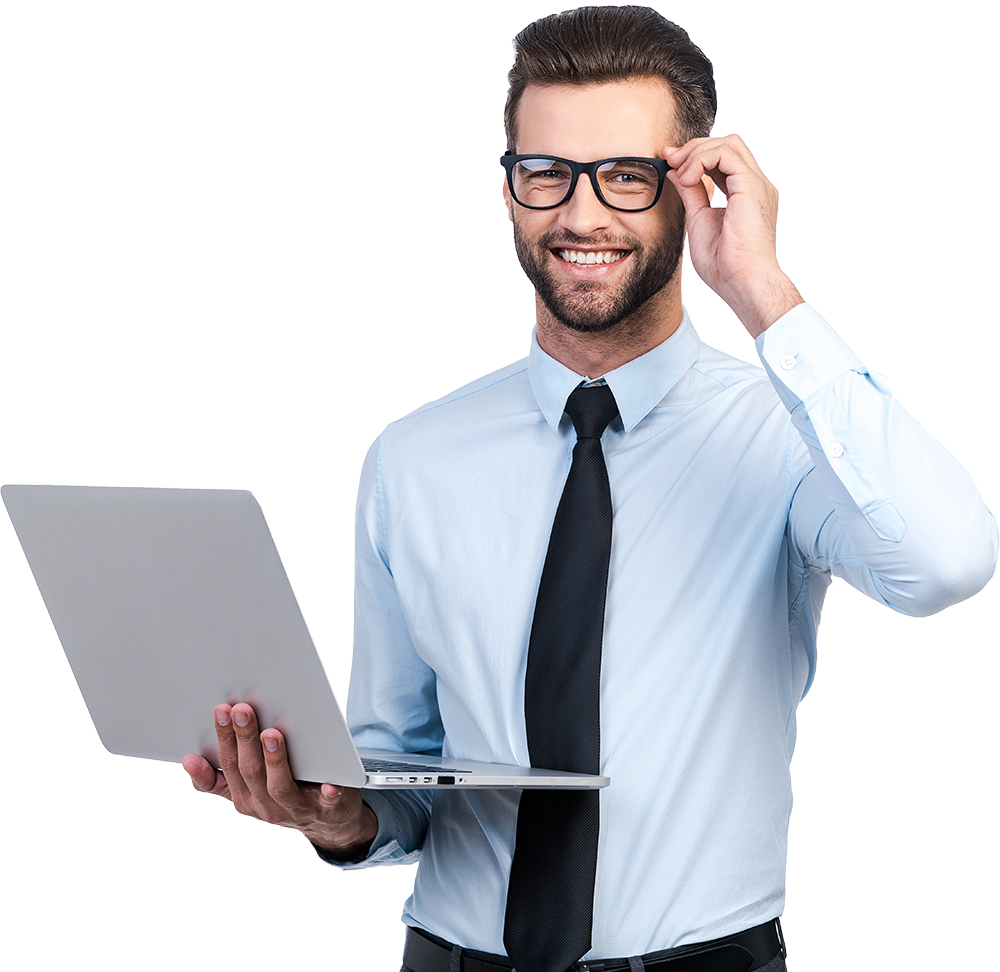Getting ISO 27001 Certified in Fort Lauderdale, Florida (FL)
Contact Us

We live in a digital era where no enterprise can continue to neglect the value of careful protection of information security. Risks vary from ransomware assaults to actual hacking of organization files. To guarantee the information they send to the organization is held confidential, customers depend on the service provider. Any breaches in the digital management of the business can pose a risk to customers’ confidentiality. Replacing the 2005 edition, ISO 27001 is an international standard offering a basis for the development and management of an information security management system (ISMS) to minimize and defend against certain threats. IQC The ISO Pros in Fort Lauderdale, Florida (FL) understands what’s important in getting certified.
Via a subcommittee, the International Organization for Standardization and the International Electro-Technical Commission collaborated together to create the specification. Although it is encouraged, it is not necessary for a company to get certified. Certification by an approved and impartial certification agency must though be carried out.

The standard is made up of ten elements and an annexure. The first portion deals with the scope, the second with reference, and the third with the reuse of definitions and terms, while the fourth clause deals with the context of the company and the stakeholders. The fifth component of ISO/IEC 27001 involves information technology leadership and top-level policy assistance for the sixth provision. Thus dealing with the ISMS, preceded by the seventh clause addressing the support of the ISMS, which includes information protection leadership and top-level policy support. The conditions for keeping the ISMS effective are covered in Clause 8, the ninth with performance evaluations, and the last section deals with disciplinary measures. Annex A describes the controls and priorities. Annexes B and C of the 2005 edition of ISO 27001 are no longer relevant.
Why is the confidentiality of information essential to you?
By adding a risk assessment framework, ISO/IEC 27001 allows you to consider the realistic methods involved in developing an Information Security Management System that protects the confidentiality, transparency, and availability of information. Therefore, incorporating an Information Security Management System that satisfies all ISO/IEC 27001 criteria helps the organization to assess and resolve the threats of information security they pose.
ISO/IEC 27001 certified persons can show that they have the requisite skills to assist organizations in enforcing information technology policies and practices adapted to the requirements of the enterprise and to facilitate the continuous enhancement of the management structure and activities of organizations.
In addition, you would be willing to prove that you have the expertise required to facilitate the process of incorporating the information protection management framework into the operations of the enterprise to ensure that the desired goals are accomplished.
ISO 27001 Accreditation
In order to audit and credit organizations under ISO 27001:2013, IQC The ISO Pros in Fort Lauderdale, Florida (FL) is approved in the US. This implies that we have the capacity, experience, and know-how to go into companies and test them against ISO 27001 criteria.
For organizations, the word ‘Accreditation’ may be misunderstood. To understand this, a standard may only be certified by certification bodies. As a corporation, you are certified to a standard. We certify our customers as an approved certification entity because they have successfully fulfilled the ISO 27001 criteria.
Accreditation is the mechanism by which a certification authority is accredited for the offering of certification services. IQC The ISO Pros in Fort Lauderdale, Florida (FL) is here to adopt ISO 17021, which is a collection of standards for certification bodies that include auditing and certification to management structures. Our accreditation bodies audit us on an annual basis to guarantee that the programs follow the exact criteria of the applicable accreditation standards.
Which sectors implement ISO 27001?
The ISO 27001 Certification is appropriate for any company in any field, big or small. Where information security is important, such as in the banking, environmental, health, public, and IT industries, the standard is particularly suitable. The standard often refers to entities that handle high quantities of data or on behalf of other organizations, such as data centers and companies that outsource IT.
ISO 27001:2013 Training
For any organization adopting or reviewing the Information Security Management System, we have both public and in-house preparation.
The advantages of partnering with a certified service provider under ISO 27001 include:
- Risk management – An ISMS helps monitor who may access specific information inside an organization, minimizing the risk that certain information can be hacked or otherwise compromised.
- Information security – An ISMS includes guidelines for information protection outlining how specific information has to be managed and transferred.
- Company sustainability – The ISMS of a service supplier must be continually checked and strengthened in order to be consistent with ISO 27001. This helps eliminate violations of data that may compromise the key business functions.
Compliance provides your customers with peace of mind with service providers, thus encouraging you to exercise due diligence with respect to data protection.
Why do we require ISMS?
With the adoption of this information management standard, there are four important business advantages that a business may achieve:
Comply with legal standards – there is an ever-growing amount of information security relevant rules, legislation, and contractual requirements, and the good news is that most of them can be overcome by applying ISO 27001- this standard provides you the best technique to comply with all of them.
Achieve competitive advantage – If your business gets certified and your rivals do not, you may have an edge over them in the eyes of those customers who are open to keeping their data secure.
Lower costs – ISO 27001’s key principle is to avoid protection issues from arising and spending money on any bad occurrence, big or small. Therefore, the corporation can save quite a lot of capital by stopping them beforehand. And the greatest part of all is that the ISO 27001 expense is far less than the expenses you no longer have to worry about.
Better organization – typically, fast-growing companies do not have the patience to sit and identify their systems and procedures. As a result, workers frequently do not know what needs to be done, where, and with whom. Implementing ISO 27001 aims to overcome those circumstances by motivating companies to write down their key procedures (even those that are not security-related), helping their staff to minimize wasted time.
Demonstrating compliance with the GDPR with ISO 27001 and ISO 27701
ISO 27001 meets Annex SL, a typical high-level framework that allows it to incorporate integrated management systems that meet several standards, much as all ISO management system standards. For starters, components with an ISO 27001-compliant ISMS could be shared by an ISO 22301-compliant BCMS (business continuity management system).
ISO/IEC 27701:2019 (ISO 27701) is an upgrade of ISO 27001 that extends the privacy management criteria, including the handling of personal details (personally identifiable information). Implementing an advanced management framework that incorporates an ISMS and a PIMS (privacy information management system) compatible with ISO 27701 would enable you to fulfill the criteria of the GDPR for the management, collection, and security of personal data.
There has been a lot of scaremongering surrounding the possible penalties for non-compliance with the GDPR, but an Information Security Management System (ISMS) would help minimize the possibility of violations, enable you to adapt to them more effectively, and show the safeguards you have in place to decrease the potential consequences of these security threats.
As this is the globally accepted standard, it helps people you work with feel comfortable and protected and know you (holding ISO 27001 certification) can look after their precious data properties and computer protection. ISO 27001 will help win potential customers and maintain the current company’s success
Why waste even more money fixing a dilemma, particularly in a crisis that can take a fraction of that in advance towards the organization? (e.g. lack of knowledge of customers). In addition, customers are constantly demanding confirmation of the management and data protection capability of computer security. As part of the sales phase, the sales department would undoubtedly attest to the volume and duration of the 'input demands' they have to contend with on a daily basis and how it is growing all the time. It all contributes to the 'cost-of-sales for the organization becoming excessive. ISO 27001 certification will reduce the information you need to worry about. IQC The ISO Pros in Fort Lauderdale, Florida (FL) will be able to assist you with this process. With a company, it doesn't get any harder as the news arrives that their databases have been compromised and customer knowledge has been revealed and abused. You would be in a stronger spot for an ISO 27001 information protection monitoring scheme to detect and avoid violation threats when they arise. Trust is critical, like many things in a company, but indicating that you have been audited separately solidifies that trust. ISO 27001 saves time and resources
ISO 27001 creates confidence and improves reputation of the business
How to achieve ISO 27001 Certification?
Usually, obtaining an ISO 27001 certification is a multi-year project that needs essential input from both internal and external stakeholders. It is not as easy as getting a checklist filled out and sent for acceptance. You must ensure that ISMS is thoroughly mature and protects all possible areas of technological vulnerability before even contemplating applying for certification.
Usually, the ISO 27001 certification process is split up into three stages:
- In order to search at the key sources of paperwork, the company employs a certification body and then does a simple examination of the ISMS.
- A more in-depth audit is conducted by the certification body where individual ISO 27001 components are tested against the ISMS of the company. Proof must be shown that procedures and protocols are being properly implemented. It is the duty of the lead auditor to assess whether or not the certification is to be received.
- To ensure compliance is held in order, follow-up checks between the certification body and the company are planned.

Tips for Maintaining ISO 27001
Just the first move to becoming completely compliant is to obtain an initial ISO 27001 certification. It is also a struggle for organizations to uphold quality standards and professional practices, as workers begin to neglect their vigilance after an audit has been conducted. It is the obligation of leadership to guarantee that this doesn’t happen.
Given how many new workers enter a company, quarterly training sessions can be organized by the organization so that all participants recognize the ISMS and how it is utilized. Established workers may now be expected to undergo an annual examination that confirms ISO 27001’s basic objectives.
Organizations must perform their own ISO 27001 internal assessments once every three years in order to stay compliant. In order to strengthen risk control strategies and search at any holes or weaknesses, cybersecurity professionals suggest doing so periodically. From a data standpoint, products will help to streamline the audit phase.
Structure of the standard
0 Implementation – A method for consistently handling knowledge threats is defined in the standard.
1 Scope – defines the general specifications of the ISMS acceptable for entities of any form, scale, or design.
2 Normative references – for users of 27001, only ISO/IEC 27000 is deemed completely essential: the remaining ISO27k standards are optional.
3 Descriptions and Concepts
4 Corporate context – awareness of the business background, stakeholder needs and aspirations, and identifying the nature of the ISMS. Section 4.4 notes quite specifically that the ISMS “is to be established, implemented, maintained and continually improved by the organization.”
5 Leadership – senior management must show leadership and devotion to the ISMS, mandate policies, and delegate tasks, duties, and authorities for information protection.
6 Preparation – describes the framework for the recognition, analysis, and planning of information risk management and clarification of information protection priorities.
7 Assistance – it is important to devote sufficient, professional personnel, increase knowledge, plan, and monitor documents.
8 Operation – a little more background on the assessment and handling of knowledge threats, the control of improvements, and the reporting of items (partly so that they can be audited by the certification auditors).
9 Assessment of results – track, assess, examine, and evaluate/audit/review the controls, protocols, and management structure of information protection, systematically changing things where possible.
10 Improvement – fix audit and examination reports (e.g. non-compliance and disciplinary action), allow constant refinements to the ISMS.
A few common misconceptions
One hears comments such as “It is necessary to change passwords every quarter” or “ISO 27001 needs us to upgrade our firewall” in several companies that use ISO27001 for information protection. Technically, this isn’t true. No concrete controls are listed in the ISO 27001 standard. ISO 27001 includes that you provide priorities, personnel, procedures, and processes for information protection (the ISMS). These procedures you can easily implement. You should, in principle, make your own choices on which controls you conduct and how based on which properties and threats the information management staff defines.
Most companies, in fact, prefer to enforce identical controls. There is a limited collection of controls generally known as best practices. Currently, there is a second standard, ISO 27002, that is a collection of these controls for best practice. Officially, this standard is a just-for-information standard, but often people use this standard as a guideline of nature to see whether they are doing enough. However, you can officially make your own choices and just apply certain controls if there is a real chance.
Another myth, we hear at IQC The ISO Pros about data protection is that it is an IT problem or IT job. The participation of the entire company, not just the IT department, is mandated by ISO 27001. For example, top management must develop targets and include budgets and services, and HR is usually interested in the resolution of risks associated with workers. You are not compatible with ISO 27001 if computer management is confined to the IT department.
An over-focus on the real amount of controls and steps that are enforced is a third myth that sometimes arises. When you have a running ISMS method, you are consistent with ISO 27001. ISO 27001 is a process standard, and the execution of the procedure should be based on you. It’s not an aim or necessity to enforce any or all controls.
BENEFITS OF CERTIFICATING ISMS:
Certifying the ISMS in Fort Lauderdale, Florida (FL)against ISO/IEC 27001 will provide the company with the following advantages:
- An autonomous structure that would take both legal and legislative considerations into account.
- Provides the opportunity to explain and objectively ensure a company’s internal controls (corporate governance)
- Proves senior management devotion to the preservation of group details and customer knowledge
- Helps to provide the business with a strategic advantage
- Formalizes and independently verifies methods, protocols, and reports for information management,
- Verifies internally that the company’s threats are correctly defined and handled
- Enables the recognition and fulfillment of contractual and regulatory specifications
- Demonstrates to customers that the confidentiality of their data is seriously taken
Although ISO 27001 compliance does not expressly include firewalls, firewall maintenance is an integral aspect of an information protection strategy. Firewall policy elements, including rules for how to install firewalls and how to configure the network, are important too. The workers and the information protection management department handle this, since they may be used as technical guidance. Automated maintenance of firewalls may help to comply with ISO 27001 specifications. For starters, logging any change immediately, allows companies to preserve traceability in the case of an occurrence and comply with A.12.4.1 Event logging control. Compliance with ISO 27001 allows companies to reduce the threats of information management. Networks ought to be handled in compliance with A.13.1.1 Network Controls. Such safeguards, like firewalls and access control lists, should take account of all business processes, be appropriately planned, and business criteria should govern their execution, risk identification, classifications, and requirements for segregation. The auditor would look and ensure if these applied controls are efficient and well-controlled, particularly in the usage of structured protocols for handling adjustments. A simple, industry-standard approach made up of security best practices are created by automatic network security management which makes companies comply with several ISO 27001 controls quickly. Contact IQC The ISO Pros in Fort Lauderdale, Florida (FL) today for a quote and assistance. With ISO 27001, how does firewall management help?
How do the firewalls apply to the checklist for ISO 27001 controls?

